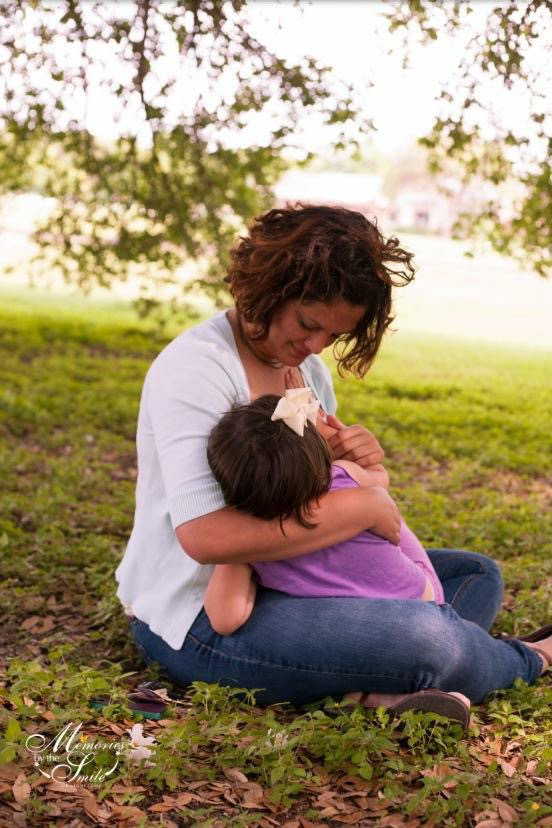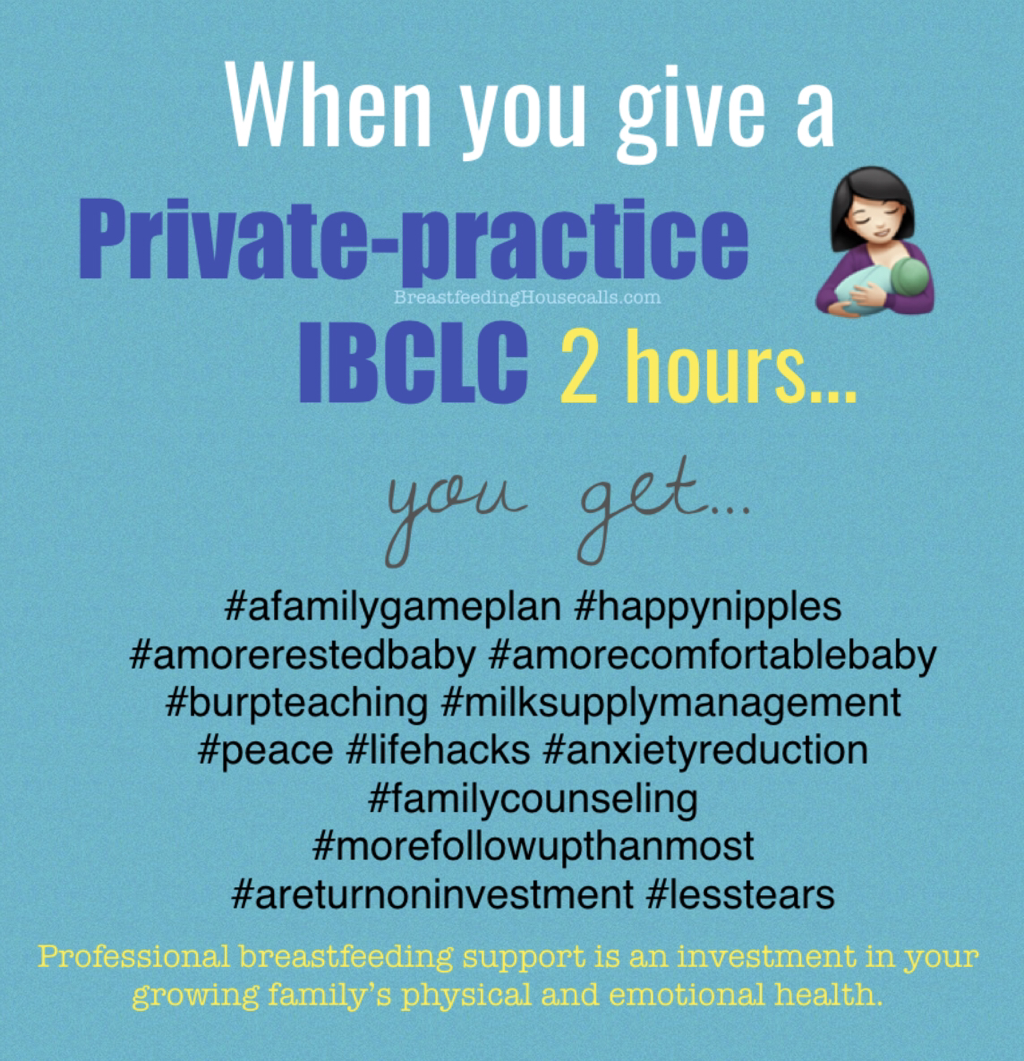Check out recent blogs!
#holidaygatherings #thanksgiving #christmas #hannukahTips for Handling the Holiday Noseys How long do you plan on breastfeeding? Why don't you just pump and bottlefeed? Doesn't it feel weird? I didn't breastfeed and my kids are fine... In many cases, gatherings with friends and family are (sadly) synonymous with breastfeeding intrusiveness. When what you really want to hear is "How are you doing, mama?" what many inquiring minds seem to care about is how your baby eats. The irony here is that the commentary can come from both camps: from those who are "pro" breastfeeding, and from those who aren't. Interestingly, Tia Carmen’s story about how she breastfed all of her seven kids perfectly may not be what a struggling new mom breastfeeding mom wants rubbed in her face. And the mom who is confident in her breastfeeding (or any mom, really) doesn't need to hear about Auntie Sally’s breastfeeding horror stories. Engaging in breastfeeding banter over Christmas dinner can spark Uncle Johnny to make some untoward comment, so if at all possible, know when to curve convos, and ask your support folk to step in, if needed. From both personal and professional experience working with both breastfeeding naysayers and breastfeeding sanctigrandmommies, I find that it's best to simply listen, change the subject, or educate with the goal of normalizing. Consider using one of these lines to stump the nosiest of friends or family: •EDUCATE (with shock and awe): Why don't you just pump and feed? Because it's his spit on my nipple and areola that uploads his nutritional and immune need into me. Pumps and formula can't do that. • LISTEN and CHANGE TOPIC: I fed my kids formula and they're fine. I'm glad your babies grew up to be healthy. How is cousin Tommy, btw? And if you really just want to be snarky... • How long do you plan on breastfeeding? Oh, he should be done in about 10 minutes. ;) Remember too, that these same people will go on to ask about your choice in diapers, how long your baby sleeps at night, and whether or not you plan on getting pregnant again next month. The good thing is that if you feel the need to escape further conversation, you can always pull the breastmilk-poop blowout card.Sorry! Gotta go change the baby! Did you find these topics helpful? What other holiday survival advice could you use? And if you have some to share, please comment below! I wish you and your babies the absolute breast this holiday season! 🦃🎄🕎 But first: Imagine that we are having coffee, and you ask me what I do to support my neurodiverse and Autistic clients. That is the context I share the information below... The goal of this post is to help the underserved niche of women, girls and female-identifying Autistics seeking birth and healthcare support. This blog is not written to alienate other identifications, and is written with the intention to elevate acceptance of female and female-identifying Autistics. Disclaimer I am writing this blog from the perspective of a neurodiverse woman, who is the proud parent to a bright, talented and ambitious Autistic daughter (whose permission and encouragement I have to share this). As such, I disclaim my selfishness, and admit that my motivation to write this stems from our experiences as neurodiverse people navigating health issues in realms in which our chattiness, silence, pauses, and lack of adherence to conventional communication standards and information processing uniqueness have often been misunderstood and mistreated. Because the pregnancy, birth, and infant-care season involves augmented sensory experiences, has increased communication requirements, and involves both short-term (ie answering questions during consults) and long-term processing (ie birth outcomes) my hope by writing this is that birth and infant-care professionals will update their practices to accommodate the needs of Autistic people. Also: This article was reviewed by Autistic and Allistic mothers and birth professionals prior to publishing. ***The suggestions in this article are best understood and implemented by those who have updated their understanding about Autism relative to girls, women, and female identifying or perceived. Please visit that link first (it will direct you to this one.***
Autistic women and girls, like neurotypicals, expect their healthcare providers to understand them The evolution of understanding of Autistic females is helping more medical and educational professionals learn their role in helping Autistic-girls and women exist at their highest potential in a world that still operates at biased baselines set for non-Autistics. In fact, with schools assessing and accommodating Autistic students earlier in life, more Autistic and neurodiverse people are entering adulthood with more information and acceptance about their difference and with agency over their learning and choice-making. Not only does this apply to academic settings, but it also applies to how Autistics experience, expect, and receive their health care and education. As health professionals, who pride ourselves in education and prevention, we must update our approaches to be inclusive to the emerging generations of adults who know more about how they learn than than anyone else. And who are they? For the sake of this article, they are Autistic and neurodiverse women and female-identifying/perceived, a demographic of Autistics who have been underrepresented in conversations about Autism until recently. Why are accommodations for Autistic birthing parents important? Note: These accommodations can help any Autistic new parent, whether the birth parent or not. Sensory Support In our educational link about Autism, you learned that Autistics have heightened sensory perception that could make sound, sights and touch especially overwhelming. While distracting and overwhelming scenarios are often faced by Autistics in many life situations, the birth and infant-care season presents a unique opportunity for supporters to help Autistic parents avoid trauma and anxiety with their birth and babies. During action-filled interactions surrounding birth and infant care, particularly when time sensitive “performance” is expected, one can imagine the stress a person with sensory-processing challenges may experience. For instance, being in a birthing room, half-dressed, with lights that are too bright or too dark, with multiple providers coming in and out asking questions, touching personal areas, family giving opinions, etc.. To any person this would be overwhelming no matter how prepared, but to a person who struggles to process information, a birth space (even calm ones, and even those that have “good” birth outcomes) could be remembered as traumatic for a lifetime. Add to that situations which have high trauma-perception for any parent, like being transferred to from a home-birth setting, having an unplanned surgical birth, having a NICU team whisk a baby away, all without transparent communication, and the likelihood of added trauma increases exponentially for anyone, and for an Autistic or neurodiverse parent, situations like these could present significant sensory challenges that are hard to process, both emotionally and technically. Sensory-Supportive Provider Interactions From prenatal appointments, to infant-feeding consultations, all new parents seemingly experience more questions and teaching than they might during other times in their lives. While the pace of these interactions may seem like a lot even to Allistic (non-Autistic) parents, to an Autistic parent who organizes thoughts better in silence, or who may need extra time to express their thoughts and questions, the pressures surrounding basic appointments can be very overwhelming. While not all Autistics shut down or enter into a “mental block” when overwhelmed many do—but preventing this can be as simple as a provider slowing down their pace, recapping what’s been shared, or stopping frequently to give opportunities for questions. Accounting for a processing vulnerability does not mean providing less information or less complex concepts (unless intellectually applicable) it simply means slowing down, and presenting ideas in ways that can be retained and used when needed. What can you change? While my suggestions are inherently biased toward birth-care professionals, they can be applied to consulting and counseling services of all types and to all genders of Autistic people. In fact, once implemented, you may find that they improve experiences for all of your clients. Know that these are not all-encompassing recommendations, and that you may need to do more to accommodate the needs of all of the neurodiverse people you serve. The ideas shared here are intended as a starting place yet know that the best way to learn how to serve anyone, and especially an Autistic or neurodiverse person is by actually asking them what they need. How to change (for the better) Like anything, change starts within oneself, so beginning by creating an accepting environment for atypical and Autistic thinkers will start with identifying, accepting and updating aspects of your practice that need it. Whether you’re a solo-practioner or a member of a group, taking inventory of things you can improve and then genuinely changing individual behaviors to be inclusive and equitable will reflect on your practice’s overall and eventual acceptance of Autism and neurodiversity. As you start planning your patient/client experience for neurodiverse and Autistic people: • Accept that the onus of need-meeting is yours, not your client’s. They came to you for help (and unless you’re a neuropsychologist, they likely didn’t come to you for help with being Autistic, they came for what you specialize in). Regardless of your personal neurotype, considering theirs in how you provide care is necessary. • Update what you previously knew about Autism by devouring every corner of this resource page and the vast resources written by Autistics online. • Understand what masking means in the context of Autism, and in particular, the nuances and dangers (to them) of encouraging masking in Autistic females/identifying...and provide services that help clients unmask when with you without being judged. • Know that it is ok to ask your clients/patients about their neurodiversity, processing differences and learning preferences. Consider adding opportunities to your intake forms for self-identification (without expecting disclosure). Examples of intake questions: “Are you a neurodiverse thinker (have ADHD, are Autistic, etc)? If so (and if you’re comfortable sharing) please tell us what we can do to make your experience with us more valuable.” ”Please help us understand how you learn best.” ”What sensory accommodations would you like us to make during your visit with us?” “Do you need a quiet space in our office?” “How comfortable are you learning with multiple people present in the consult?” • Update your use of language and terminology surrounding neurodiversity and Autism; identify and change abliest approaches (you can learn about this in our resource page). What you can start doing right away: • Provide anticipatory guidance in a layered approach: provide verbal, written material as well as videos of concepts you have or will teach. Having multiple venues to reinforce teaching is great for everyone, and very good for Autustics. • Watch your expressions of frustrations and be mindful of any patronizing or cutesy tone that could cause a person to feel inferior. Autistics may be stereotyped as having issues expressing their feelings via gestures or facial expressions, but most are seasoned observers and can be more perceptive to expressions than words. • Check your use of analogies, sarcasm, and terms not easily understood by literal thinkers (i.e. in lactation, these would be terms like “liquid-gold”, “nose-to-nipple”, “nursing-nest”, etc.). • Allow extra thought-processing time when asking questions • Ask for consent to hug or touch (with any person, always!) • Don’t automatically interpret disinterest from an Autistic person because eye contact or tone isn’t mirrored Note: Ask about trauma if it is suspected, but also know that some sensory issues look like trauma (i.e. low gaze, fast pace talking, high-anxiety, mentally-stuck, etc.) and that insisting that sensory issues are trauma when they are actually not, can cause client-distrust and create trauma where it did not exist. If you need help teasing out trauma-related reactions vs Autism-related behaviors, discuss your case with an experienced neuropsychologist. *** My hope is that this article and it’s resource page have not only given seeds of acceptance and understanding to providers, but that those who learned from it sow these seeds in themselves and them in those they mentor. -Laura 🪴 Maybe you’ve weighed out the benefits of social-distancing, maybe your area doesn’t have a lactation consulting resource close to you, maybe a video-consult seems less overwhelming, maybe you need quicker answers?
Whatever your reason for seeking virtual health-support, we want to make sure you make the best of your time with your providers. While this is a breastfeeding-specific blog, these tips may help you also think thru how to make the best of your time with other birth-providers. TIPS 1. If the consult will involve your child or baby, see if you can have an extra set of hands for videoing. For virtual lactation consults, for example, it’s enormously helpful to have a “camera-person” to help free up your hands and give us better angles when we need them. Plus an extra (supportive) person involved the consult is always helpful. 2. Use a device that can easily be moved, like a phone or tablet, since so much of what we assess requires zooming-in (to observe latch) and zooming-out (to assess positioning), and because making your way to your desktop’s camera to show us a cracked nipple can be challenging when holding a little one! 3. Make sure to have good lighting. Natural bright light behind the camera works best but isn’t required. Consider having a flashlight or another device with a flashlight available in case we need to look closer at your anatomy, inside babies mouth or into pump flanges in action. 4. If you want your lactation consultant to observe a feed and help you troubleshoot latch, make sure to have your baby ready (partially fed and changed) before the beginning of the consult. Feed your sweetpea partially (not fully) about half an hour before the consult time or pick a time for the appointment when baby will not be ravenously hungry. Also, change the baby’s diaper prior to starting. Clearly, there’s flexibility in stopping to change a baby’s diaper, but having them ready to go helps us make better use of your investment and our time together. 5. If your consult will involve pumping, bottlefeeding, or possible suck-training, make sure to have pump parts, bottles and pacifiers washed and ready to go to cut down on time of stopping to organize equipment. 6. Have realistic expectations of Internet connectivity and signals, and have additional secure communication platforms downloaded if needed (we’ll send links to you prior to our consult for alternative platforms). 7. At the time of scheduling, be realistic about how much time you will need for your consult. We want to troubleshoot permanently all of your breastfeeding issues, instead of just stabilizing a few of them. While we always allow for an extra half hour of time in case it’s needed (see homepage for rates when consults go longer) we see families back-to-back and for scheduling reasons, we appreciate knowing beforehand how long our consults will be. 8. Likely the most important tip for preparing for your virtual consult: Complete the e-intake forms in the client portal we will email you access to once we accept your appointment reservation. Completing these forms well before our appointment time helps sooooo much in making sure we use our time together wisely. BONUS TIP: Jot down your questions! ••• Whether you schedule with us or another virtual lactation consultant, we hope these tips for preparing for your virtual consult help you have a wonderfully productive session! To see if you even need an IBCLC, look here: http://www.breastfeedinghousecalls.com/breastfeeding-blog/what-is-normal-with-breastfeeding-and-when-to-seek-help To read more about why private-practice IBCLCs are worth their weight in liquid gold: http://www.breastfeedinghousecalls.com/breastfeeding-blog/6-reasons-why-hiring-a-private-practice-lactation-consultant-is-worth-their-weight-in-liquid-gold And to get a feel of what happens when an IBCLC visits you, check this out: http://www.breastfeedinghousecalls.com/breastfeeding-blog/what-exactly-happens-during-a-lactation-consultation 🤱🏻💜 BUT FIRST:
This article is based on my professional experience working with new parents in the communities which I lovingly serve (San Antonio, Texas USA and its surrounding rural areas). It's possible that other parts of the US or other countries have different models of healthcare than the relationships represented in this article (pediatricians, midwives, general practice doctors and lactation consultants). The thoughts shared below are based on my experiences with the referral of mothers and babies to their healthcare professionals when clinical scenarios present to me during lactation consultations. In order to prevent bias toward any genre of providers, no physician, midwife or other lactation consultant was directly involved in the writing or review of this article,. My hope is that the following thoughts are insightful to parents seeking to build life-long relationships with providers who support them and their babies. -Laura Choose a Doctor Who Supports Your Family's Health Goals One of the most important things that expectant parents can do is choose their baby's doctor well before their sweet baby arrives, even when planning on birthing with a midwife (more on this below). Many parents don't realize that they don't have to wait until their insurance company, hospital or midwife provides them with a list of pediatricians (a list not usually given to parents until after baby is born). In fact, by doing their homework about doctors prenatally, parents will have time to think about what matters most to them and be able to make an educated choice about the providers who will support them. Discovering Your Family's Health Values Your pregnancy (or your baby's gestation, if you are adopting) has given you a few months to think about your growing family's future health. If you haven't already talked to your partner or other support people about health topics that are important to your family, as soon as possible is the right time. Educating yourself about health topics and defining your health values will prove very important to choosing your baby's doctor. What are health values? Your health values are those things that are important to you and your family when it comes to health and wellness, and these values are different for every family. For example, when it comes to babies some families will discuss vaccinations, circumcision, the family's diet, a mother's breastfeeding goals, and even the what-ifs of childhood (discipline/behavior or adolescent issues). Once you and your partner or support person have talked about what is most important, it will be easier to ask your friends and community for referrals to providers who will support you (much more about about how to do this in just a bit). Valid points to ponder... Choose your baby's providers based on their ability to support all of your family's health goals, not just one or two of your health goals.
Choosing a Doctor Who Supports Your Breastfeeding Goals Ideally, because breastfeeding is still relatively new to our chapter in humanity, in addition to the health topics discussed above, it is wise that breastfeeding families choose a physician (or midwife for care during baby's first weeks) who has taken the time to update their practice with contemporary and evidence-based breastfeeding management skills. If your doctor or midwife is not also an International Board Certified Lactation Consultant (most are not, and that's ok) it is important that he or she have access to or knowledge about resources that offer prompt care from International Board Certified Lactation Consultants (IBCLCs) as a supplement to their medical care and guidance. IBCLCs are breastfeeding experts who help troubleshoot and improve breastfeeding and will provide information about your baby's feeds which is helpful to doctors. Remember, you doctor or midwife doesn't have to be a breastfeeding expert, but knowing who to refer you to when a breastfeeding expert is needed is an important aspect to consider when choosing a provider for your baby. Midwifery Care Does this advice apply to me since I plan on using a midwife as my newborn's healthcare provider? Yes! It absolutely applies! In the same way that parents who deliver with a midwife prepare a Plan B for birth (in case of a hospital transfer) there is a lot of wisdom in asking your midwife for referrals in selecting a doctor just in case your baby needs one during the early days. Midwives can be an excellent referral source for families seeking like-minded physicians. In fact, there are two points when families who see midwives will need to have their baby's care transferred to a doctor. These two points during midwifery care are:
Remember that selecting a doctor for your baby "just in case" won't mean that your baby won't continue seeing your midwife for their healthy and normal newborn care. It simply means that you will be prepared when your midwife is ready to transfer your baby's healthcare to a doctor. Also, rest assured that just because your baby has to see a doctor during your early weeks for medical reasons, doesn’t mean you can’t resume care with your midwife until baby is old enough to graduate out of their care. Some important things to think about: • Emergency Rooms: Not being registered with a doctor's practice can cause parents to be routed to a hospital emergency room for their baby's routine and non-emergency medical care--although in cases of emergencies babies should always be taken to emergency rooms for evaluation and treatment. Being registered with a doctor (yes, this could involve taking baby in at least once to the doctor's office so that there is an established patient-provider relationship) would allow parents to be able to call their doctor in cases or non-emergencies, instead of being seen at an emergency room for non-emergencies. Most doctors who have not yet seen baby at least once will not offer medical advice over the phone, and will refer families to emergency rooms. • Other Providers: Other healthcare providers often require families to be on-record with a physician in case clinical situations arise during their care for which a report or a referral is necessary. For example, speech pathologists and lactation consultants are examples of healthcare professionals who work with babies who may require that a baby have a doctor. Finally, here are some TIPS that can help you pick the right doctor for your baby:
Questions to Ask Your Baby's Doctor Below are are some questions (mostly about breastfeeding, but can be insightful for all parents) to ask your baby's doctor. Having attended a breastfeeding class during your pregnancy can help your understanding of contemporary breastfeeding practices, something which will be helpful when asking your future pediatrician about their breastfeeding supportiveness. If you haven’t yet taken a breastfeeding class, now would also be a good time to register for one. Questions about breastfeeding to ask your baby's doctor: Remember, the only "right" answers to these questions are the answers that most closely match your family's health values.
And, here are some additional points to ponder when choosing a provider:
To conclude... Remember that you will be seeing your baby's doctor during your baby's first days, first months, throughout their first year--and of course, every single time you have a medical question or concern about your baby (which will be frequently, trust me). Needless to say, your baby's doctor will be a very big part of your baby's life (and of yours) so taking the time to choose them wisely will be one of the most important choices you will make for your baby's future health! If you found this advice helpful, make sure to share it with your friends! 💜 Helpful Links:
Sharing is caring! Please share or print this article for educational purposes, but please do not copy/paste or take any parts of it as your own. I usually do an intro to blogs, but this one doesn’t need an into-unless you missed this week’s NYT article about Trump’s administration’s opposition to global breastfeeding protection, preservation and support (which also stated that the US bullied other countries into opposing) in order to create fruitful ground for formula companies. If you missed it, take a moment to read it and weap, and then come back here to learn what you can do ASAP.
|
Check Previous Blogs!
November 2023
|













 RSS Feed
RSS Feed
